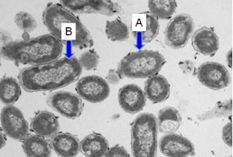|
|
|
|
|
|
| A powerful new antiseptic agent, called ozone nano-bubble water, holds promise for the treatment of periodontitis, or severe gum infections, according to research published in the journal Science and Technology of Advanced Materials |
TOKYO, Sept 12, 2014 - (ACN Newswire) - The study, published in the journal Science and Technology of Advanced Materials, by Shinichi Arakawa and colleagues at Tokyo Medical and Dental University and Japan's National Institute of Advanced Industrial Science and Technology, evaluated the bactericidal activities of ozone nano-bubble water - also known as NBW3 - against the two main bacterial agents that cause periodontitis as well as its toxicity to human oral tissue cells.
 | | Ozone nano-bubble water: a potential treatment for severe gum infections |
Their results showed that NBW3 can kill periodontal pathogens within 30 seconds of exposure, yet has only a minor impact on the viability of oral tissue cells after 24 hours of exposure.
Based on their in vitro results, the researchers conclude that NBW3 could become a valuable tool for treating periodontitis. However, since in vitro models cannot be directly compared to real-life clinical situations in which oral antiseptics are diluted with saliva, the authors recommend further research to determine the extent to which NBW3's potency may be reduced by the saliva of dental patients.
Periodontitis is an inflammation of the oral tissues that surround and support our teeth - it is caused by bacteria residing in "biofilms" or dental plaque.
The traditional first step of periodontal treatment involves "mechanical debridement" (i.e. scraping away the dental plaque and dental calculus). Various antiseptics and antibiotics have been used to supplement mechanical debridement.
But antibiotic therapies have several significant drawbacks, such as the selectivity of antimicrobial action, possible development of resistant bacteria, and risk for adverse host reactions. For these reasons, the topical use of a low-cost, broad-spectrum antiseptic agent with low potential for adverse reactions is preferable.
One possible alternative is ozone (O3), which has strong antimicrobial activity against bacteria, fungi, protozoa and viruses, and does not induce microbial resistance. Aqueous ozone is highly biocompatible with oral tissue cells. However, ozonated water must be used within the first 5 to 10 minutes after production to assure its potency.
To address this obstacle, co-author M. Takahashi and K. Chiba developed a patented procedure to produce ozone nano-bubble water. NBW3 retains its oxidation ability for more than six months if protected from exposure to ultraviolet rays. Its high stability allows for the bottling and use of NBW3 as a disinfectant solution.
For further information contact:
Shinichi Arakawa
Tokyo Medical and Dental University
Email: s-arakawa.ltoh@tmd.ac.jp
For more information about NBW3
Masayoshi Takahashi
Advanced Industrial Science and Technology (AIST)
Email: m.taka@aist.go.jp
Reference:
Sae Hayakumo, Shinichi Arakawa, Masayoshi Takahashi, Keiko Kondo, Yoshihiro Mano and Yuichi Izumi: Sci. Technol. Adv. Mater. Vol. 15 (2014) p. 055003. DOI:10.1088/1468-6996/15/5/055003
http://iopscience.iop.org/1468-6996/15/5/055003/
Press release distributed by ResearchSEA for Science and Technology of Advanced Materials.
Topic: Research and development
Source: Science and Technology of Advanced Materials
Sectors: Science & Research, BioTech
http://www.acnnewswire.com
From the Asia Corporate News Network
Copyright © 2026 ACN Newswire. All rights reserved. A division of Asia Corporate News Network.
|
|
|

|